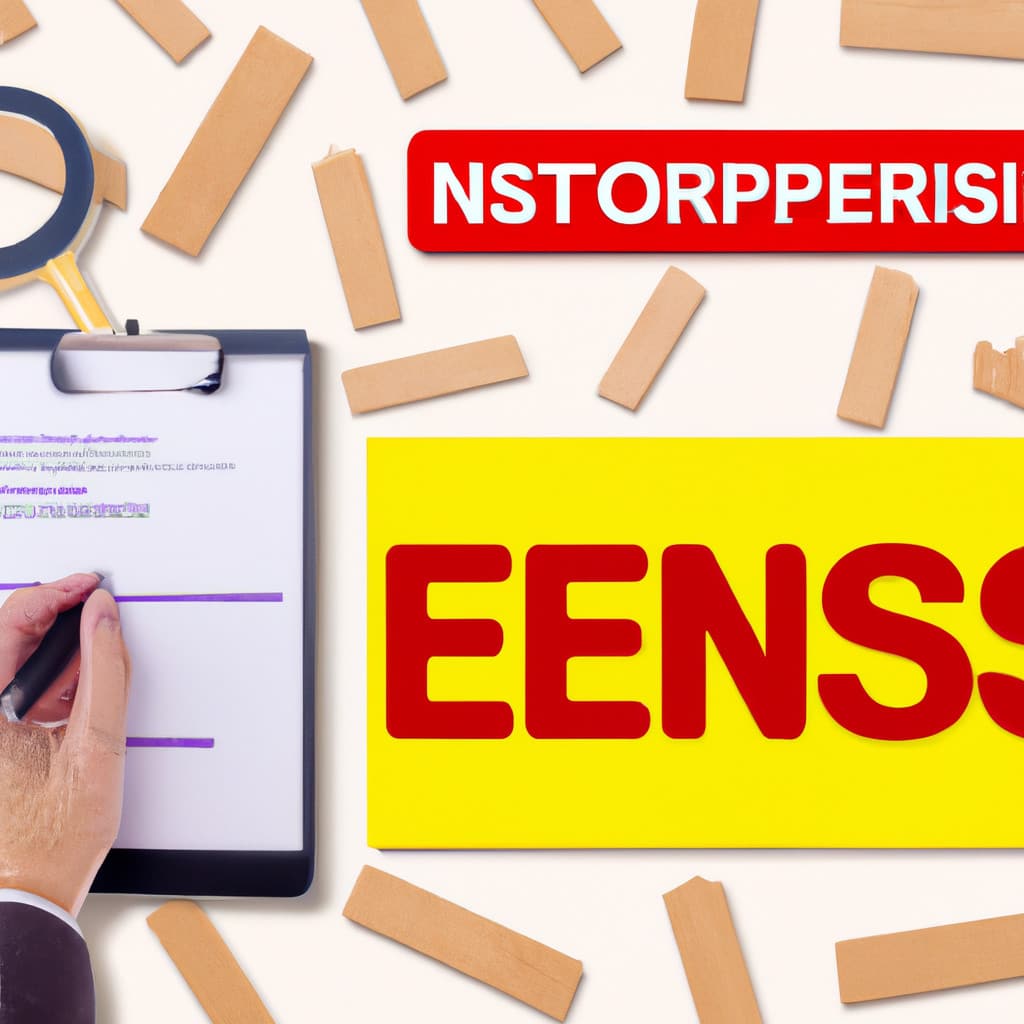7 Little-Known Facts About Case Sensitivity in PowerShell
Are you tired of grappling with case sensitivity issues in PowerShell? Do you wish you could simply have a one-size-fits-all solution for all your case sensitive concerns? In this comprehensive guide, we’ll dive deep into the world of PowerShell case sensitivity and reveal 7 little-known facts that will equip you with the knowledge and skills required to master any pesky case sensitivity issue you may come across.
These facts are sourced from years of experience working with PowerShell, and their practical insights are ideal for any expert software engineer who deals with this versatile command-line tool on a regular basis.
But first, let’s start by addressing the foundational question: Is PowerShell contains case sensitive?
# Fact 1: By Default, PowerShell is Case-Insensitive
Yes, that’s right. Out of the box, PowerShell treats most of its operations as case-insensitive. This means that it generally doesn’t matter whether you use upper or lower case letters when executing commands or comparing strings. This fundamental feature was designed for ease of use, ensuring that users can focus on what really matters – the task at hand.
For example, if you want to compare two strings:
“`powershell
PS> “PowerShell” -eq “powershell”
True
“`
As you can see, even though the two strings have different capitalization, PowerShell still considers them equal because it doesn’t differentiate between upper and lower case by default.
# Fact 2: PowerShell Offers Case-Sensitive Options for Most Commands
Despite the case-insensitive defaults, PowerShell still provides the flexibility to deal with case-sensitive scenarios when needed. Most cmdlets and operators have a case-sensitive variant available in case you need to work with precise character matching.
Take the following Compare-Object cmdlet example:
“`powershell
$Array1 = @(‘apple’, ‘orange’, ‘banana’)
$Array2 = @(‘Apple’, ‘orange’, ‘BANANA’)
Compare-Object -ReferenceObject $Array1 -DifferenceObject $Array2 -CaseSensitive
“`
In the example above, using the `-CaseSensitive` switch makes the comparison case sensitive, and it will show that only the second element (‘orange’) is identical in both lists.
# Fact 3: Use the Right Operators for Case Sensitivity
When it comes to comparing strings or other objects, PowerShell offers a set of operators designed to specifically handle both case-insensitive and case-sensitive comparisons. Here’s a list of operators you can use:
– -eq / -ceq: Equal (case-insensitive) / Case-sensitive equal
– -ne / -cne: Not equal (case-insensitive) / Case-sensitive not equal
– -like / -clike: Pattern-match (case-insensitive) / Case-sensitive pattern match
– -notlike / -cnotlike: Pattern-mismatch (case-insensitive) / Case-sensitive pattern mismatch
– -contains / -ccontains: Contains (case-insensitive) / Case-sensitive contains
Using the appropriate operator for your specific case sensitivity requirements ensures accurate results.
For instance:
“`powershell
PS> “PowerShell” -ceq “powershell”
False
“`
As you can observe, by using the -ceq operator (case-sensitive equal), PowerShell now considers the two strings different due to the capitalization discrepancy.
# Fact 4: Hashtable Keys are Case-Insensitive
In PowerShell, hashtable keys are case-insensitive by default, which means you can access the values in a hashtable without worrying about the capitalization of the keys.
“`powershell
$hashTable = @{
Key1 = ‘Value1’
Key2 = ‘Value2’
}
PS> $hashTable[‘key1’]
Value1
“`
# Fact 5: Regular Expressions are Case-Sensitive
When working with regular expressions in PowerShell, keep in mind that they are case-sensitive by default. To use case-insensitive regular expressions, you can include the (?i) pattern modifier.
Example:
“`powershell
PS> ‘PowerShell’ -match ‘(?i)powershell’
True
“`
# Fact 6: Create Custom Case-Sensitive Hashtables
If you need a case-sensitive hashtable for your project, you can create one using the .NET framework’s [System.Collections.Specialized.OrderedDictionary] class:
“`powershell
$caseSensitiveHashTable = [System.Collections.Specialized.OrderedDictionary]::new([System.StringComparer]::Ordinal)
“`
# Fact 7: Use CultureInfo.CurrentCulture.CompareInfo for Complex String Comparisons
For advanced case-sensitive text manipulation and comparisons, including working with Unicode or special characters, consider using .NET’s CurrentCulture.CompareInfo methods:
“`powershell
$compInfo = [System.Globalization.CultureInfo]::CurrentCulture.CompareInfo
$compInfo.Compare(‘PowerShell’, ‘powershell’, ‘IgnoreCase’) # Returns 0 if equal
“`
By now, you should have a clear understanding of PowerShell’s case sensitivity features and how to leverage them in different scenarios. Whether you’re comparing strings, working with hashtables, or manipulating text, these 7 little-known facts will prove invaluable in your journey to mastering PowerShell’s case sensitive intricacies.
How can I perform a case-sensitive string comparison using PowerShell commands?
In PowerShell, you can perform a case-sensitive string comparison using the -ceq (case-sensitive equals) operator. Here’s an example:
“`powershell
$string1 = “PowerShell”
$string2 = “powershell”
if ($string1 -ceq $string2) {
Write-Host “The strings are equal.”
} else {
Write-Host “The strings are not equal.”
}
“`
In this example, since “PowerShell” and “powershell” do not match each other exactly in case, the output would be “The strings are not equal.”
The -ceq operator is the key element here, as it provides you the ability to make case-sensitive comparisons in PowerShell.
Are PowerShell array and hashtable operations case-sensitive by default, or do I need to configure them?
In PowerShell, array operations are case-insensitive by default. However, hashtable operations are case-sensitive by default. If you need to make hashtable operations case-insensitive, you can create a custom IEqualityComparer and pass it as an argument when creating the hashtable:
“`powershell
$caseInsensitiveComparer = [System.StringComparer]::OrdinalIgnoreCase
$caseInsensitiveHashTable = @{Comparer = $caseInsensitiveComparer}
“`
Now, when you perform operations on the `$caseInsensitiveHashTable`, they will be case-insensitive.
What are the best practices for handling case sensitivity in string manipulation within PowerShell command-line?
In the context of PowerShell command-line, it is important to be aware of case sensitivity when handling string manipulation. Here are the best practices for dealing with case sensitivity in PowerShell:
1. Use case-insensitive operators: When comparing or matching strings, use operators such as -eq, -contains, and -match, as they are case-insensitive by default. If you need case-sensitive comparison, consider using -ceq, -ccontains, or -cmatch instead.
2. Standardize case: Before performing any string operations, standardize the case of all text to either upper or lower case using the ToUpper() or ToLower() methods. This will ensure consistent results when performing comparisons or manipulations.
Example:
“`powershell
$string1 = “Hello World”
$string2 = “hello world”
if ($string1.ToLower() -eq $string2.ToLower()) {
Write-Output “Strings are equal when case is ignored.”
}
“`
3. Use StringComparison enumeration: When using .NET methods for string manipulation and comparison, make use of StringComparison enumeration to control case sensitivity.
Example:
“`powershell
$string1 = “Hello World”
$string2 = “hello world”
$result = $string1.Equals($string2, [System.StringComparison]::OrdinalIgnoreCase)
if ($result) {
Write-Output “Strings are equal when case is ignored.”
}
“`
4. Regular expressions with RegexOptions: In scenarios where you need to use regular expressions, make use of RegexOptions enumeration to control case sensitivity.
Example:
“`powershell
$pattern = “hello”
$inputString = “Hello World”
$regexOptions = [System.Text.RegularExpressions.RegexOptions]::IgnoreCase
if ([System.Text.RegularExpressions.Regex]::IsMatch($inputString, $pattern, $regexOptions)) {
Write-Output “Pattern found with case-insensitive matching.”
}
“`
By following these best practices, you can effectively handle case sensitivity in string manipulation within PowerShell command-line.

